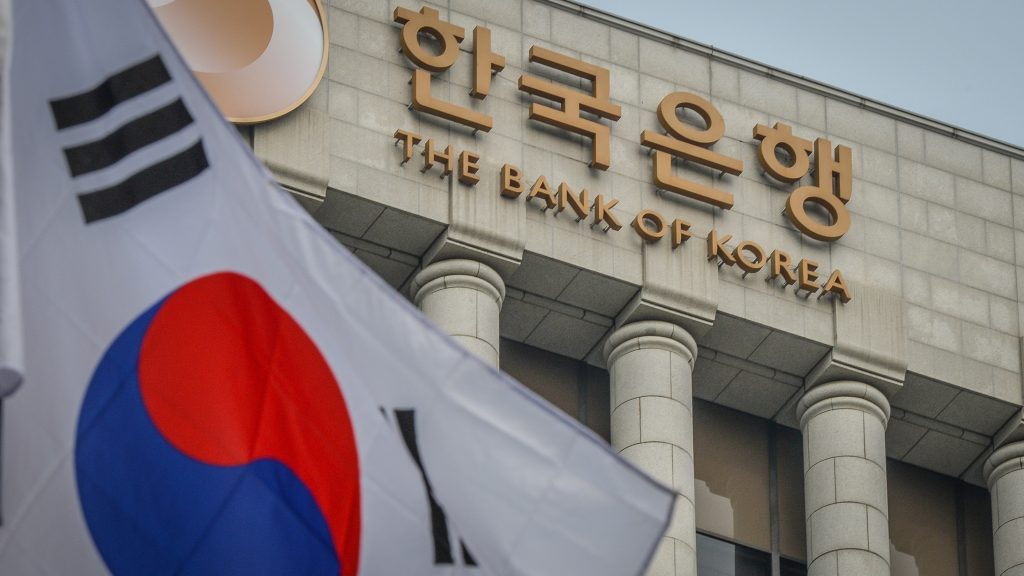In a landmark decision on December 28, 2023, the Bank of Korea (BOK) under the leadership of Governor Rhee, Changyong, approved a groundbreaking Monetary Policy for 2024 that charts a new course for the nation’s financial landscape. Central to this policy is the approval for the introduction of a Central Bank Digital Currency (CBDC), a move that has been anticipated and closely watched by financial experts and the public alike.
The BOK’s ambitious plan involves a comprehensive review and expansion of the foundation for introducing a CBDC, with the intention of conducting wholesale CBDC pilot tests in collaboration with domestic organizations and financial institutions during the fourth quarter of the upcoming year. The bank is poised to delve into the legal and institutional aspects of CBDC introduction while engaging in ongoing discussions with various stakeholders, including the government, the National Assembly, private sector experts, international organizations, and central banks from major economies around the globe.

One of the most striking revelations from the policy announcement is South Korea’s bold step towards the practical implementation of CBDC through a pilot project involving 100,000 citizens. This pilot, scheduled to commence in the fourth quarter of 2024, aims to provide a hands-on experience for a small but representative fraction of the population, constituting approximately 0.2% of the country’s inhabitants. The selected participants will have the unique opportunity to use tokens issued by commercial banks in the form of a CBDC to purchase goods, albeit with restrictions excluding applications such as remittances.
To understand the origins of this groundbreaking policy, it is essential to trace back to the series of proof-of-concept (PoC) experiments undertaken by the BOK between August 2021 and June 2022. These experiments primarily focused on testing the technical feasibility of a CBDC on a Distributed Ledger Technology (DLT) based platform. The objectives of these PoC experiments were twofold: first, to validate the technical and institutional design features of a CBDC in a simulated virtual space, and second, to test the feasibility and reliability of DLT in supporting baseline functions ranging from CBDC lifecycle management to peer-to-peer (P2P), offline, and cross-border payments.
The BOK’s CBDC test system, constructed in the cloud on a hybrid model with a two-tier structure, is a testament to the meticulous planning behind this groundbreaking initiative. The system is divided into four main components: the BOK system, participant system, end user support system, and the ledger management system.
The BOK system serves as the nerve center, managing the entire CBDC lifecycle, from creation and issuance to redemption and discarding, all within a secure area inaccessible from the internet. The creation and discard operations involve multiple rounds of authorization procedures with different private keys, mirroring real-world security arrangements. This module acts as the gateway connecting participant nodes’ virtual reserve balances with the BOK and the corresponding CBDC circulation in the simulated space.
The participant system supports participant nodes when they transfer or redeem a CBDC to/from an end user’s wallet, adjusting the end user’s corresponding account balance with the nodes. The end user support system facilitates payment initiation for end users and generates CBDC receipts using their mobile wallet apps. Finally, the ledger management system processes CBDC payments and circulation on the permissioned DLT platform constructed by the BOK, whose design features align with the open-source protocols of Ethereum.
As South Korea prepares to embark on this pioneering journey into the realm of CBDC, the implications are vast and far-reaching. The pilot project represents a crucial step in understanding the practicalities, challenges, and benefits associated with the integration of CBDC into the everyday lives of citizens. It also positions South Korea at the forefront of global efforts to explore and implement digital currencies in a controlled and systematic manner.
The BOK’s commitment to engaging various stakeholders, both domestically and internationally, underscores the collaborative nature of this endeavor. The ongoing discussions with the government, the National Assembly, private sector experts, international organizations, and central banks from major economies demonstrate a concerted effort to ensure that the introduction of CBDC aligns with broader economic objectives and global financial trends.
As we look forward to the fourth quarter of 2024, when the CBDC pilot project is set to commence with 100,000 participants, the eyes of the financial world will undoubtedly be on South Korea. The success of this initiative could pave the way for broader adoption and implementation of CBDCs globally, shaping the future of currency and finance in ways that were once thought unimaginable. The Bank of Korea’s 2024 Monetary Policy is not merely a policy document; it is a blueprint for the future of finance, a testament to South Korea’s commitment to innovation, and a signal to the world that the digital revolution in currency is well underway.
Reference
https://www.bok.or.kr/eng/bbs/E0000634/view.do?nttId=10081473&menuNo=400069
https://www.bok.or.kr/portal/cmmn/file/fileDown.do?atchFileId=FILE_000000000036021&fileSn=1



